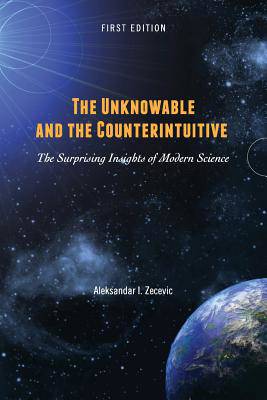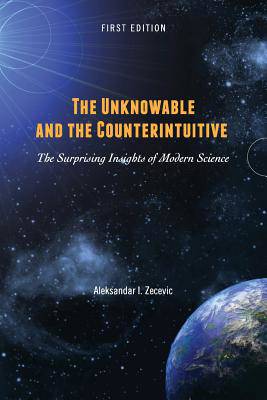
- Retrait gratuit dans votre magasin Club
- 7.000.000 titres dans notre catalogue
- Payer en toute sécurité
- Toujours un magasin près de chez vous
- Retrait gratuit dans votre magasin Club
- 7.000.0000 titres dans notre catalogue
- Payer en toute sécurité
- Toujours un magasin près de chez vous
The Unknowable and the Counterintuitive
The Surprising Insights of Modern Science
Aleksandar ZecevicDescription
The Unknowable and the Counterintuitive: The Surprising Insights of Modern Science explores four diverse topics--chaos theory, metamathematics, quantum mechanics, and the theory of relativity--that each challenge the traditional Newtonian paradigm. In doing so, the text encourages students to question deeply ingrained beliefs regarding nature, physical reality, and human knowledge.
The book is divided into four chapters, with each focusing on a different area of modern science and mathematics. In Chapter 1, students explore chaos theory through discussions of linear systems, characteristic features of chaos, mechanisms that can lead to chaotic dynamics, and more. Chapter 2 introduces the field of metamathematics and provides a brief description of formal systems. Chapter 3 is devoted to quantum mechanics, speaking to the basic mathematical formalism used within the discipline, Heisenberg's Uncertainty Principle and the phenomenon of quantum entanglement, Bell's inequality, and basic concepts from group theory. The final chapter explores special relativity and general relativity.
Designed to inspire students to develop a more sophisticated view of physical reality, The Unknowable and the Counterintuitive is an interdisciplinary text that is well suited for courses in science and engineering, as well as courses that address the relationship between science, religion, and the humanities.
Aleksandar Zecevic is a professor of electrical engineering and the Associate Dean for Graduate Studies at Santa Clara University. His technical research interests include graph theoretic decomposition algorithms, electric power systems, Boolean networks, and the control of complex dynamic systems. He has published more than 40 papers in leading journals in these fields, and some of his most important results are summarized in his book, Control of Complex Systems: Structural Constraints and Uncertainty.
Spécifications
Parties prenantes
- Auteur(s) :
- Editeur:
Contenu
- Nombre de pages :
- 168
- Langue:
- Anglais
Caractéristiques
- EAN:
- 9781516593323
- Date de parution :
- 06-05-19
- Format:
- Livre broché
- Format numérique:
- Trade paperback (VS)
- Dimensions :
- 152 mm x 229 mm
- Poids :
- 231 g

Les avis
Nous publions uniquement les avis qui respectent les conditions requises. Consultez nos conditions pour les avis.






